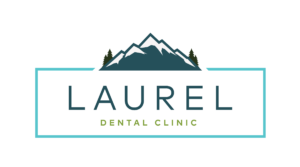There has been a link between these two diseases that have been studied for years and time and again a strong correlation has been found. The severity of the periodontal disease increases with poor glycemic control and blood sugar levels are more difficult to regulate in individuals with periodontal disease.

Periodontal disease has even been described as a complication of diabetes. So let’s take a look at each of these diseases, how they affect the other, and why preventive care is so important. Untreated periodontal disease can cause fluctuation in blood glucose.
Periodontal Disease
As we discussed in a previous post, periodontal disease is the inflammation and destruction of gingival tissue and the bone supporting our teeth. It is fairly common, occurring in about 50% of American adults. If periodontal disease goes untreated and becomes advanced it can lead to sore, bleeding gums; painful chewing problems; and even tooth loss.
Diabetes Mellitus
Diabetes is a chronic systemic illness affecting about 10% of American adults and another 35% are prediabetic. Many people view diabetes as only affecting blood sugar levels, but the reality is it either directly or indirectly affects all the body organs and their functions.
The Link
The correlation between the aforementioned diseases appears to go both ways. Severe periodontal disease accounts for about 10-15% of cases. Severe disease was found to be prevalent in around 60% of Diabetic patients as compared to 39% in non-diabetics.
It’s been shown the immune response is lowered in adults with diabetes making them more susceptible to general infections, including but not limited to periodontal disease. Diabetes also causes poor wound healing, which makes periodontal disease treatment less predictable.
Poor collagen synthesis and impaired production of bone cause weakened gum tissue, ligaments and bone supporting the teeth.
Diabetes and Periodontal Disease
So far, most research on the relationship between diabetes and periodontal disease has focused on how diabetes may affect periodontal status, a growing body of evidence also has examined the opposite relationship; namely, how periodontal diseases affect the metabolic state.
Severe periodontal disease increases blood sugar levels and increases the time an individual spends with higher blood sugar. This effect on blood sugar also makes it more difficult to gain control and keep at a stable level.
In order to maintain control of diabetes, regular testing of blood sugar is imperative.
In summary, the link here has been vastly studied and nearly always results in a negative impact of one disease on the other. Prevention is key and maintaining good oral hygiene can help, studies show that periodontal treatment decreases inflammation which may help diminish insulin resistance.
It is also imperative to keep working with your physician to keep your HbA1c below 7% to aid in decreasing your risk of severe periodontal disease. As your dental professionals, we are here to help you in any way we can to take control of your oral & overall health! Please make sure to inform your provider if you have diabetes or a family history of diabetes.
References
American Academy of Periodontology – https://www.perio.org/consumer/gum-disease-and-diabetes.htm
J Pharm Bioallied Sci. 2012 Aug; 4(Suppl 2): S280–S282.Diabetes & Periodontal Disease – https://www.ncbi.nlm.nih.gov/pmc/articles/PMC3467897/
Diabetologia. 2012 Jan; 55(1): 21–31. Periodontitis and diabetes: a two-way relationship – https://www.ncbi.nlm.nih.gov/pmc/articles/PMC3228943/
CDC –https://www.cdc.gov/diabetes/data/statistics-report/index.html
NIH – https://www.nidcr.nih.gov/health-info/gum-disease/more-info
ADA – http://www.ada.org/~/media/ADA/Member%20Center/FIles/Perio_diabetes.ashx


